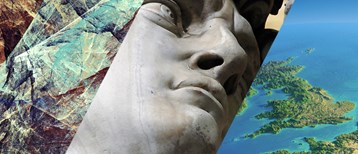A degree in Fine Art combines theory and practice to allow you to become a professional artist with a clear creative ambition. You’ll also learn how to correctly analyse and interpret art so you can have an informed, critical opinion. Courses are usually flexible and give you the chance to study a wide variety of artistic disciplines.
Read MoreStudying for an undergraduate degree in Illustration is about more than just doodling in the margins of your notebook and it could lead you down some very interesting professional career paths.
Read MoreThe Arts Definitive Study Guide
Studying the arts at university takes real talent and dedication, often above and beyond that required for more conventional courses, such as the sciences or engineering. You need to be a self-starter and to be able to motivate yourself to work independently and creatively. But once you have graduated, an arts degree leaves a huge number options open to you, giving you a wide choice of careers on graduation. The arts trains your mind as well as giving you practical skills and that provides a very attractive mixture for any employer.
Read MoreCultural Studies Degree Courses
Degrees in cultural studies allow you to analyse aspects of life within our complex and conflictual globalised world. Cultural studies are closely linked with anthropology, languages, media and sociology. Cultural studies are ideal if you are naturally inquisitive about the world we live in, have an interest in psychology and sociology. There are no subject specific entry requirements; many universities require a minimum of 200 UCAS points or international equivalent. Cultural studies opens up your career prospects, where you may find yourself in a variety of industries from multicultural community work and tourism, to marketing, media and the arts.
Read MoreCourses in dance develop performance, creativity and critical analysis within its cultural context. A professional, practicing dance artist requires a passion for dancing, classical or contemporary, and the ability to contribute to the progressive development of technique and performance skills. Prerequisites include current practical experience in dance and a high level of fitness. A-level in dance may be desirable or required by some universities. A career in dance is highly competitive, therefore work placement is strongly suggested while studying. Dance graduates have a range of opportunities available to them, from the performance industry, choreography to education, health and fitness.
Read MoreSo you fancy a life on the stage or the big screen, spending your evenings walking down the red carpet while photographers call your name and adoring fans queue for hours just for the chance of getting your autograph? If so, you probably shouldn't become an actor.
Read MoreTheatre and Dramatic Arts Degree Courses
Studying Theatre and Dramatic Arts is not a fast track to fame and fortune. Of course, some graduates will go on to successful careers as actors, directors or writers, but for many the wider industry will provide the ultimate career. Don't be put off from studying in the field if you are passionate about theatre and the stage, however. Alongside the chance to develop your skills, you will also be gaining self-confidence and presentational skills that could make you attractive to any number of employers if fame doesn't beckon. You will already know if you are comfortable on the stage and have a track record of performing before applying, as you will almost certainly be asked to audition before being offered a place.
Read MoreThe skills you acquire as an undergraduate doing a fashion degree will vary according to the nature of your course.
Read MoreFashion and Design Degree Courses
For students who are creative, always seeking to try new things and have a flair for visual design, studying Fashion may well prove the perfect fit. Most Fashion degrees will cover a range of skills that are needed to work within the industry, from design and manufacture to fashion's history.
Read More










